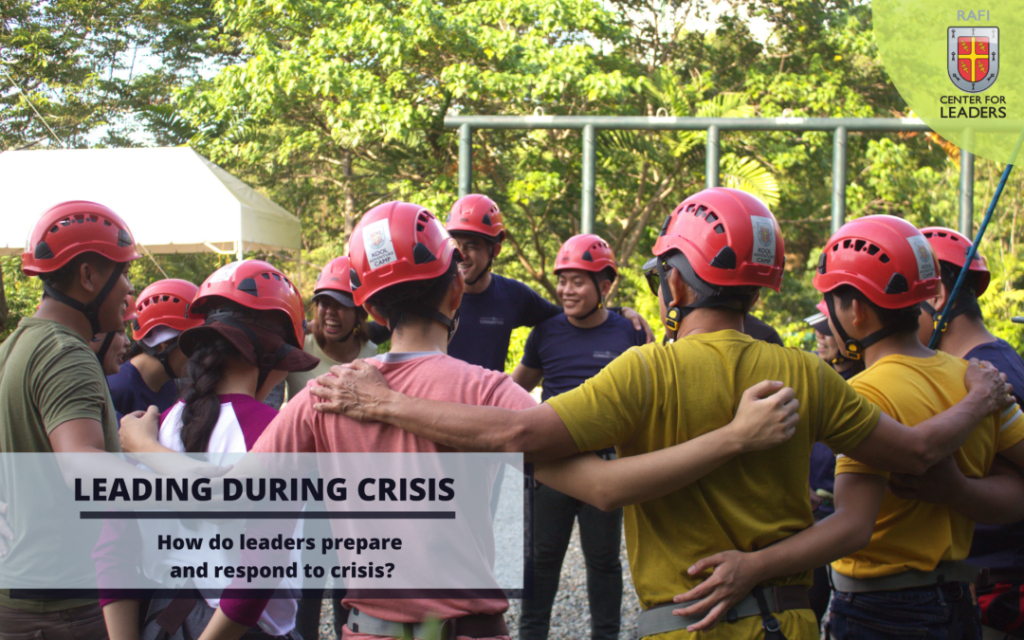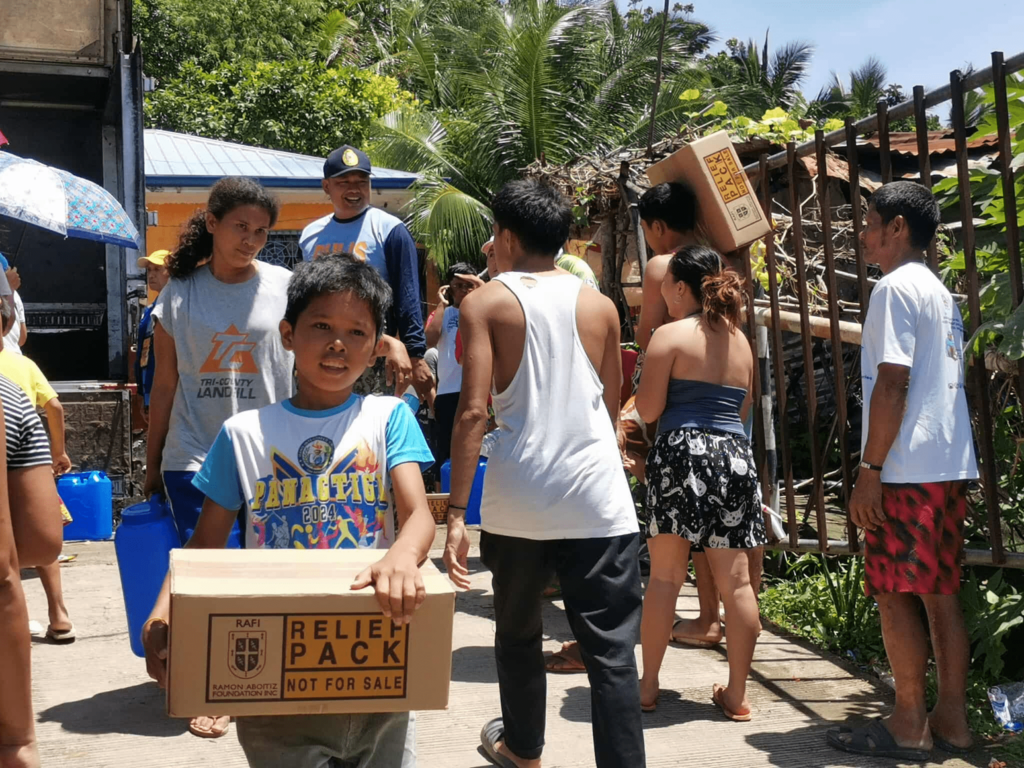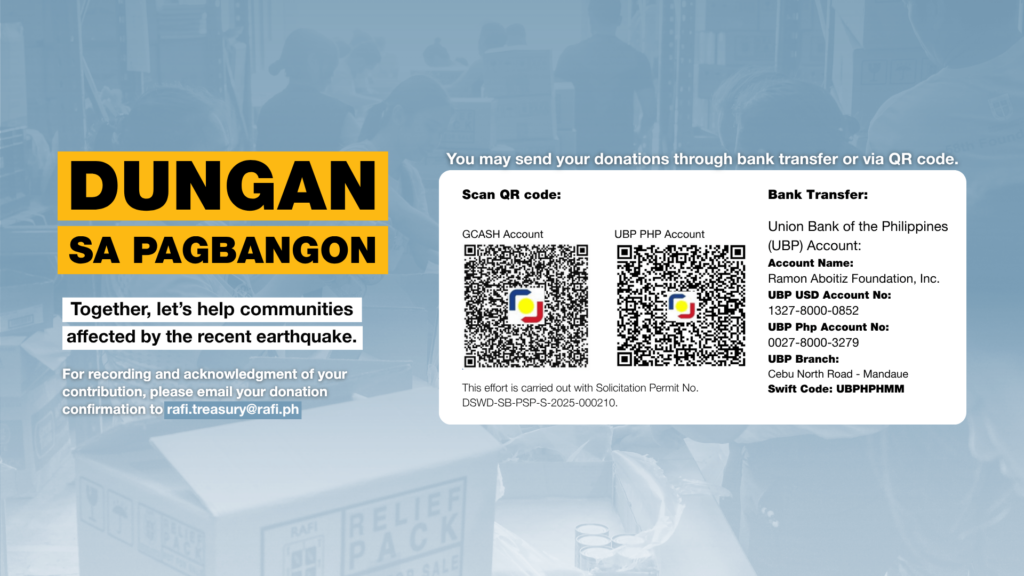
Leading During Crisis
by Jasmynne Crispo and Elisabeth Baumgart
The world is facing a global crisis.
As the COVID-19 pandemic steadily spreads across the globe, it continues to put nations to a slow standstill and people at risk. Global communities rush towards protecting its people and making sure that everyone is safe and taken care of.
Globally, organizations face disruptions. With countries implementing quarantine and stay-at-home orders, organizations have developed new modalities in effectively running their operations and ensuring the safety of their people.
Over the last few weeks, organizations have seen a flurry of changes. Schools have taken on online learning approaches, delivery services now offer contact-less deliveries, work-from-home work arrangements have been implemented as the whole world has been forced to adjust to a “new normal.”
With the global pandemic threatening how organizations operate, leaders are now challenged to find new ways of effectively managing their operations and putting the safety of their people first. The global crisis has demanded leaders to think on their feet and develop solutions to a landscape that changes daily. Effectively leading during a crisis has required leaders to quickly adapt and think fast through a global crisis that has affected millions.
On its website, the Center for Creative Leadership (CCL) shares “Crisis Leadership” author Gene Klann’s 5 actions to help leaders in effectively preparing and responding to a crisis:
- Seek Credible Information.
- Use appropriate communication channels.
- Explain what your organization is doing about the crisis.
- Be present, visible, and available.
- Dedicate organizational resources for future crises.
CCL stresses that effective leaders “determine the most reliable, up-to-date information from trustworthy sources.” As the pandemic continues to affect millions of lives, trustworthy information is key for leaders in making sound decisions, action steps, and rolling out adaptive measures in times of a crisis. CCL highlights the importance of sharing information and building a culture of transparency in the organization.
CCL adds the importance of taking action and leadership over the problems the organization is facing during the crisis. Taking active steps in addressing the crisis involves making sure these benefit both the organization and its people. “As you make decisions and take action, communicate those actions truthfully and honestly,” shares CCL.
As the crisis continues to affect the organization and its people, leaders have to be accessible and present. Whether it be physically or virtually, leading through a crisis highlights the importance of building strong relationships and the assurance that leaders are easily accessible for updates and questions. As organizations battle through the crisis, leaders need to assure their people of their plans, measures, and recovery plans.
Despite the struggles of the global, we hear of shining examples of leading through a crisis. At the Ramon Aboitiz Foundation, Inc. (RAFI), the organization took active measures in responding to the crisis by taking care of both its people and the communities it serves.
“RAFI, based on the 3Cs of leading in times of crisis showed clarity by using credible and actionable information that helped clear the everyone’s assumption and fears, connected with all team members and ensured their wellbeing, and effectively collaborated local government units and organizations for implementation of relief operations,” said Leomil Urpiana, Training Team Lead for Corporate Professional Development Programs of the RAFI Center for Leaders. Through its efforts, RAFI has responded both to the needs of the communities it serves and its people.
At the RAFI Center for Leaders, the organization remains committed in helping effectively lead through a crisis. While the center continues to be on a course break, the RAFI Center for Leaders is currently developing content to equip leaders and their organizations through these challenging times.
To kick-off its learning series for Leaders Leading during Crisis, the RAFI Center for Leaders will host a “Work-From-Home Hacks: Survival Tips & Best Practices in RAFI” series to help leaders and their organizations in building a stronger work-from-home culture. More information on the learning series may be found on the RAFI Center for Leaders Facebook Page.
[/et_pb_text][/et_pb_column][/et_pb_row][et_pb_row make_fullwidth=”off” use_custom_width=”off” width_unit=”off” custom_width_px=”1080px” custom_width_percent=”80%” use_custom_gutter=”off” gutter_width=”3″ allow_player_pause=”off” parallax=”off” parallax_method=”on” make_equal=”off” parallax_1=”off” parallax_method_1=”on” parallax_2=”off” parallax_method_2=”on” parallax_3=”off” parallax_method_3=”on” parallax_4=”off” parallax_method_4=”on” disabled=”off”][et_pb_column type=”4_4″ disabled=”off” parallax=”off” parallax_method=”on”][et_pb_text background_layout=”light” text_orientation=”left” use_border_color=”off” border_style=”solid” disabled=”off”]The RAFI Center for Leaders provides learning and development programs that equip leaders and enable communities through world-class, safe, powerful learning experiences. It has its own adventure education facility, the Kool Adventure Camp, the country’s first and fully-dedicated adventure education facility.


